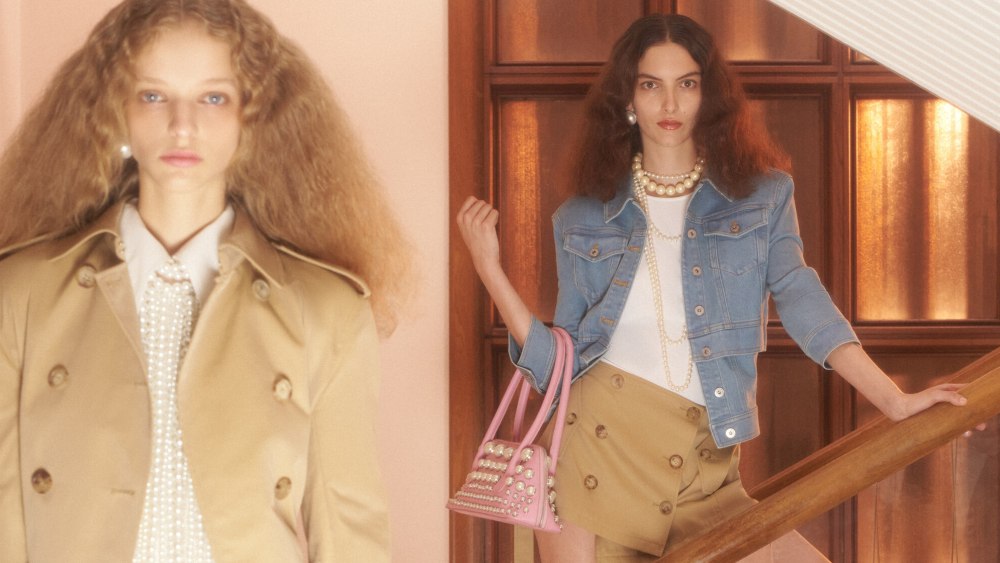PARIS — A year after exiting Blumarine, Italian designer Nicola Brognano is launching an eponymous capsule with Envision, a newly launched production-to-retail platform.
“This is a new and exciting project to me: a small capsule of easy garments made with care and developed at the right prices,” he said. “I had the time to design those pieces with fun, having in mind a sensual and playful woman who loves fashion as much as I do.”
Expect a 50-reference lineup of sexy and wearable options for spring 2025 that expands on the Y2K aesthetic he explored at the storied Italian house for four years.
Available for wholesale from Friday, the range is priced between 250 and 1,600 euros at retail. Tailored jackets and blazers will be between 350 and 500 euros, skirts or open seam pencil trousers will be around the 350-euro mark.
Looks from Nicola Brognano’s spring 2025 capsule with Envision.
Dario Salamone/Courtesy of Envision
Denim, a highlight in the line, sits between 400 and 450 euros and there will also be micro miniskirts and slinky evening dresses. Accessories spanning belts, bags, footwear and jewelry will also be available.
Behind this new sketch-to-market concept is Laura Darmon, Envision’s founder and chief executive officer, who is also the buyer for China-based store group ENG.
She started the platform after hearing scores of designers open up about the ongoing financial challenges independent labels face and fellow buyers expressing frustrations at navigating a product-saturated market.
“Between creativity and commerciality, there’s this huge problem and both sides were suffering,” she told WWD.
Darmon described Envision’s methodology as a virtuous circle that connects designers, physical retailers and producers.
Designers can produce lines to test new concepts or even readiness for their own labels, with buyer feedback and needs well identified. The platform can also support them in producing for their own e-shops, with guaranteed production prices, better delivery windows and better margins thanks to higher volumes.
Production is done in China, where Darmon has lived for five years and developed relationships with factories working with high-end and luxury European labels.
This too is meant to give emerging labels and independent designers an additional market advantage, as prices work out 40 percent below what a brand could traditionally achieve on their own at equivalent quality, by her estimate.

Looks from Nicola Brognano’s spring 2025 capsule with Envision.
Dario Salamone/Courtesy of Envision
“That’s really important nowadays because buyers won’t pick emerging or independent brands when their prices are on par with luxury offerings,” she added.
But Envision isn’t about opening the floodgates to make new product. “We aim to curate collections based directly on partners’ feedback,” Darmon said. “Distribution is deliberately limited, with only a few stores in each region.”
Retailers can tap into an appealing assortment that can be tailored precisely to them and won’t be found at a dozen other stores including e-tailers. Overall, the founder also hopes it will reduce the amount of unwanted product that ends up being marked down or disposed of.
For now, the platform is planning on launching no more than two collaborations with designers a year, one during men’s and another during the womenswear market.
In addition to production and wholesale, Envision also offers a direct-to-consumer arm that can host and manage a designer’s e-commerce offering, as well as a range of consulting services.

